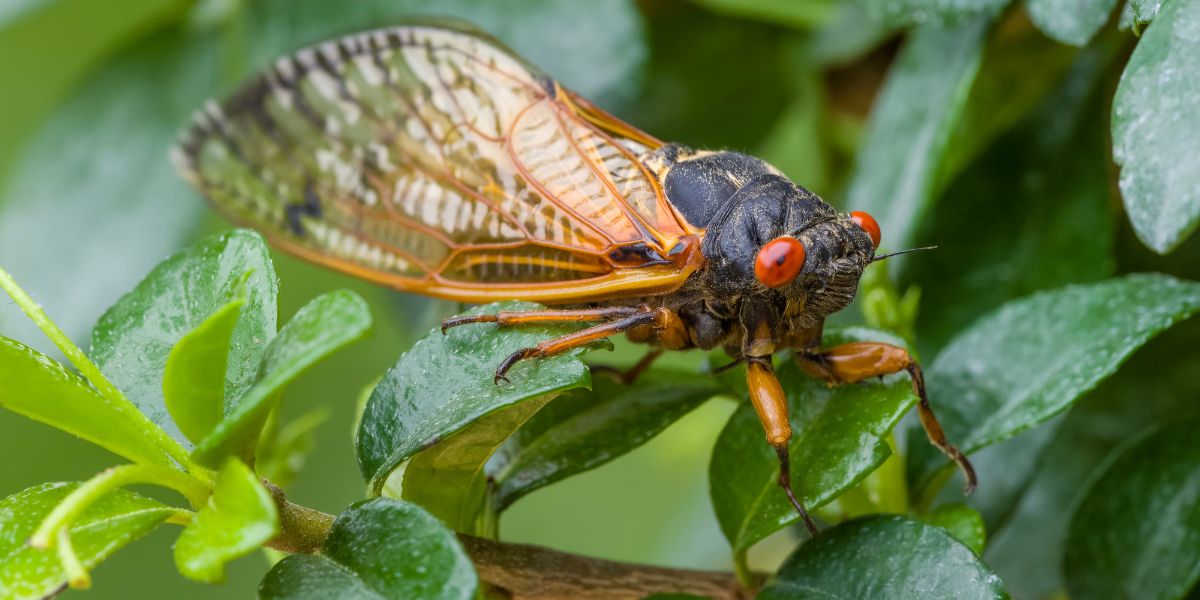Cicada Brood XIV Emerges After 17 Years: Will Alabama Hear the Buzz This May?
For the first time in 17 years, Cicada Brood XIV is set to emerge in the eastern and southeastern United States — a spectacular natural event that will bring billions of loud, buzzing insects to trees, lawns, and backyards. This particular brood is one of the largest and most widespread of the periodical cicadas, and scientists and bug-watchers alike are excited to see its long-awaited return.
But the big question for Alabama residents is: Will we be part of the swarm this month?
Here’s what you need to know about Brood XIV, which states are affected, why this emergence matters, and whether Alabama should prepare for an insect invasion.
What Is Brood XIV?
Cicadas are fascinating insects known for their unusual life cycles. While some species appear every year, periodical cicadas spend most of their lives underground — 13 or 17 years depending on the brood — before emerging all at once in huge numbers.
Brood XIV is a 17-year cicada brood, meaning it last appeared in 2008. This year, billions of these red-eyed insects are set to surface in a synchronized wave across 12 states, creating a chorus of shrill buzzing that can reach up to 100 decibels — as loud as a motorcycle.
This brood includes three species: Magicicada septendecim, Magicicada cassini, and Magicicada septendecula. They are harmless to humans and pets but can damage young trees and shrubs because females lay eggs in small twigs, causing some branches to die.
Which States Will See the Cicadas?
According to entomologists, Brood XIV will emerge in the following states:
- Kentucky
- Tennessee
- Indiana
- Ohio
- Pennsylvania
- West Virginia
- North Carolina
- Virginia
- Maryland
- Georgia
- Massachusetts
- New York
Noticeably absent from this list is Alabama.
While parts of northern Alabama have historically seen periodical cicadas from other broods (such as Brood XIX, a 13-year brood), Brood XIV’s range does not include Alabama. That means most of the state’s residents won’t see the large-scale emergence — or hear the relentless noise — this month.
However, people living near the Tennessee or Georgia borders might catch a few stragglers, especially if they live in heavily wooded areas.
Why Do Cicadas Matter?
Though they might seem like a nuisance, cicadas play an important role in the ecosystem.
When billions of cicadas emerge, they provide a massive food source for birds, mammals, reptiles, and even fish. The sheer volume of insects overwhelms predators, ensuring that enough survive to reproduce. This is known as “predator satiation.”
Cicadas also aerate the soil as they tunnel to the surface, and when they die, their bodies provide nutrients to the ground. Their egg-laying can prune weak branches, which some scientists believe helps stimulate new plant growth.
For researchers, these emergences are valuable opportunities to study insect behavior, environmental changes, and the impacts of climate shifts on synchronized life cycles.
Should Alabama Residents Prepare for Cicadas?
The short answer: no, not this time.
Since Brood XIV’s range doesn’t cover Alabama, most people in the state won’t experience the event firsthand. However, Alabama is home to other cicada broods — including the 13-year Brood XIX, sometimes called the “Great Southern Brood,” which is due to emerge in 2024.
That means Alabama will get its own massive cicada wave next year, with billions of insects expected to appear across the state, including Birmingham, Huntsville, Montgomery, and Mobile. So while Alabamians can rest easy this month, they may want to start preparing for next spring.
If you happen to travel to one of the affected states this month — especially Kentucky, Tennessee, or Georgia — be prepared for cicada noise, insect encounters, and even some delays if you’re flying or driving. Cicadas are drawn to loud noises and can sometimes interfere with engines or equipment.
Fun Facts About Cicadas
- They don’t bite or sting: Cicadas might look intimidating, but they’re harmless to people and pets.
- They’ve been around for millions of years: Fossil records show cicadas existed even before dinosaurs went extinct.
- They’re loud on purpose: Male cicadas sing to attract females, and the louder they are, the more likely they are to find a mate.
- They time their emergence to avoid predators: By appearing every 13 or 17 years, cicadas avoid syncing up with predator cycles.
Looking Ahead
Even though Alabama won’t see Brood XIV this month, residents can look forward to an even bigger event next year when Brood XIX emerges across much of the South. That emergence is expected to overlap in some areas with Brood XIII from the Midwest, making it one of the largest periodical cicada events in decades.
For now, curious Alabamians can follow Brood XIV updates online or take a road trip to neighboring states to witness the strange, noisy spectacle. Just remember to bring earplugs — and maybe a camera — to capture one of nature’s most impressive insect events.

